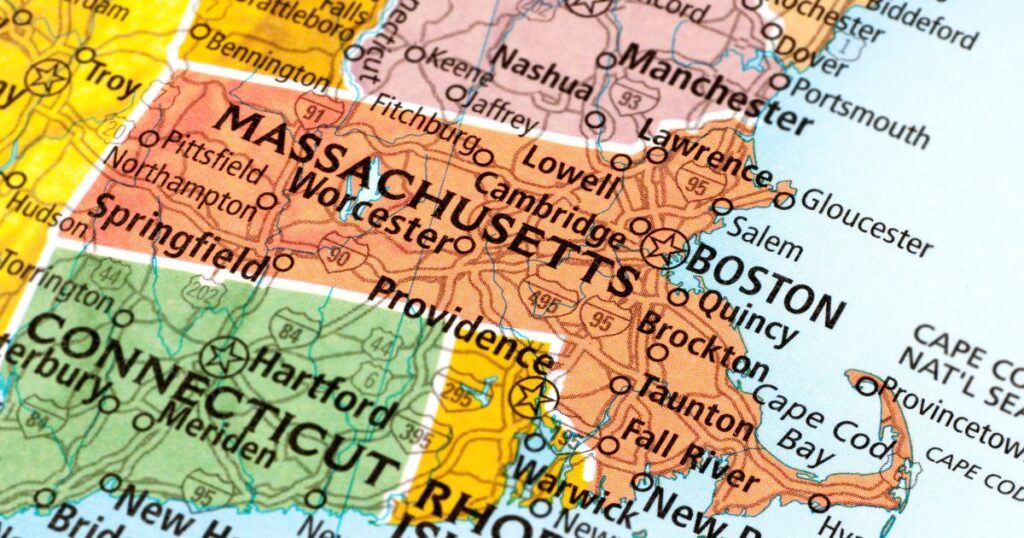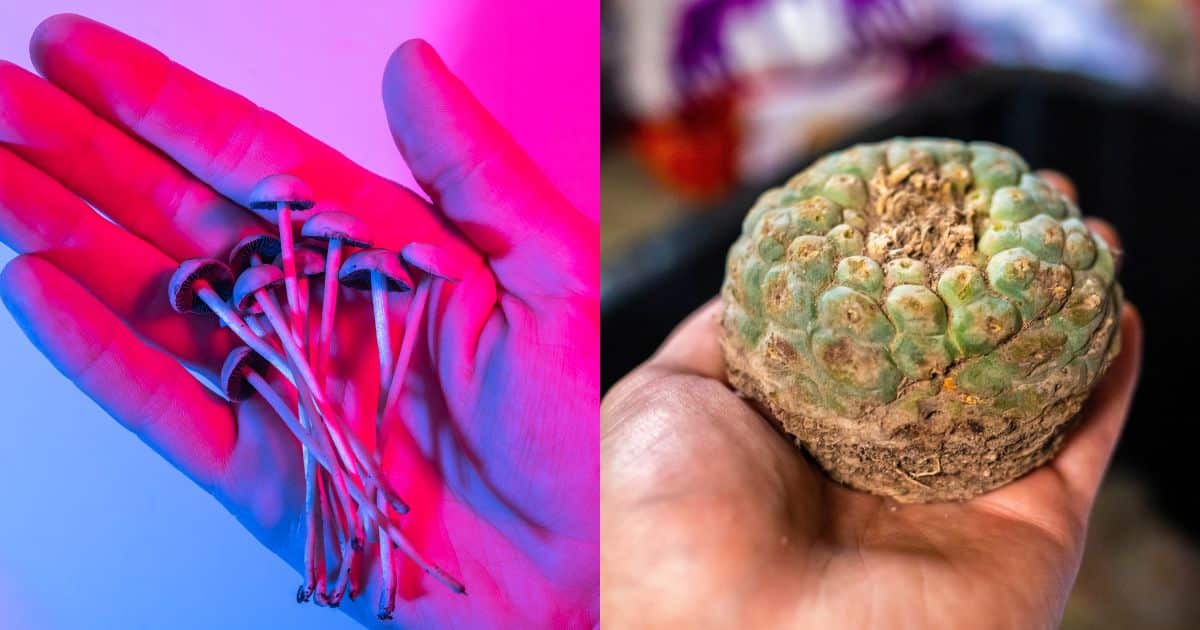In recent years, there has been a growing interest in the potential therapeutic benefits of psychedelics for mental health conditions. In response to this emerging trend, a group in Massachusetts has taken on the ambitious task of legalizing and regulating access to these substances through a ballot initiative.
The campaign aims to provide more options for mental health treatment and reduce barriers to accessing alternative therapies. With over 75,000 signatures in two months, the Massachusetts for Mental Health Options initiative has gathered enough support to move forward.

Psychedelic substances, such as psilocybin, have a long history of use in traditional healing practices. However, they were declared illegal under federal law in the 1970s and have remained classified as Schedule I drugs, considered to have no medical value. This has hindered research into their potential therapeutic benefits.
In recent years, studies have shown promising results for using psychedelics in treating conditions such as depression, anxiety, PTSD and addiction. This has sparked a renewed interest in these substances as potential tools for mental health treatment.
Massachusetts Natural Psychedelics Substances Act
Since September, proponents of The Natural Psychedelics Substances Act, reached out across the state and gathered more than 75,000 signatures, as reported by The Boston Globe.
The next step for the initiative is to turn the signatures into the secretary of state’s office before a December deadline. If all signatures are verified, it will pass on the legislature to be voted on. If lawmakers decide not to legalize psychedelics by May 1, activists would then have until July 3 to submit at least 12,429 additional valid signatures to put the proposal on the November 2024 ballot as reported by Marijuana Moment.
The Natural Psychedelics Substances Act, per a summary aims to
- Allow persons aged 21 and older to grow, possess, and use certain natural psychedelic substances in certain circumstances
- The psychedelic substances allowed would be two substances found in mushrooms (psilocybin and psilocyn) and three substances found in plants (dimethyltryptamine, mescaline, and ibogaine).
- Could be purchased at an approved location for use under the supervision of a licensed facilitator. This proposed law would otherwise prohibit any retail sale of natural psychedelic substances.
- Provide for the regulation and taxation of these psychedelic substances.
- Would license and regulate facilities offering supervised use of these psychedelic substances and provide for the taxation of proceeds from those facilities’ sales of psychedelic substances.
- Allow persons aged 21 and older to grow these psychedelic substances in a 12- foot by 12-foot area at their home and use these psychedelic substances at their home.
- Would authorize persons aged 21 or older to possess up to one gram of psilocybin, one gram of psilocyn, one gram of dimethyltryptamine, 18 grams of mescaline, and 30 grams of ibogaine (“personal use amount”), in addition to whatever they might grow at their home, and to give away up to the personal use amount to a person aged 21 or over.
- Create a Natural Psychedelic Substances Commission of five members appointed by the Governor, Attorney General, and Treasurer which would administer the law governing the use and distribution of these psychedelic substances.
- Creates a Natural Psychedelic Substances Advisory Board of 20 members appointed by the Governor, Attorney General, and Treasurer which would study and make recommendations to the Commission on the regulation and taxation of these psychedelic substances.
- Allows cities and towns to reasonably restrict the time, place, and manner of the operation of licensed facilities offering psychedelic substances, but cities and towns could not ban those facilities or their provision of these substances.
- Sales of psychedelic substances at licensed facilities would be subject to the state sales tax and an additional excise tax of 15 percent. In addition, a city or town could impose a separate tax of up to two percent.
- Using the psychedelic substances as permitted by the proposed law could not be a basis to deny a person medical care or public assistance, impose discipline by a professional licensing board, or enter adverse orders in child custody cases absent clear and convincing evidence that the activities created an unreasonable danger to the safety of a minor child.
- Would not affect existing laws regarding the operation of motor vehicles while under the influence, or the ability of employers to enforce workplace policies restricting the consumption of these psychedelic substances by employees.
- Law would take effect on December 15, 2024
Benefits Of Iniative Passing
The potential legalization of psychedelics in Massachusetts has generated much excitement and anticipation among mental health professionals, researchers, and advocates. If voted on and approved, the Natural Psychedelic Substances Act has the potential to bring various positive outcomes for both individuals and society as a whole.
Firstly, the decriminalization of psychedelics could open up avenues for further research into their potential therapeutic benefits. Currently, many researchers face significant barriers in obtaining licenses and funding for studying psychedelic substances due to their illegal status. Legalization could remove these obstacles and allow for more comprehensive studies on the efficacy of psychedelics in treating mental health conditions.
Moreover, legalization could provide access to a potentially effective treatment option for individuals struggling with conditions such as depression, anxiety, and PTSD. Recent studies have shown promising results in using psychedelics to treat these disorders, with some individuals reporting significant improvements after just a single dose. This could potentially reduce dependence on traditional pharmaceutical treatments that may come with unwanted side effects.
Furthermore, taxing the sale of psychedelic substances could generate significant revenue for the state, which could be directed toward various public health initiatives and services. This could potentially improve access to mental health resources for low-income individuals and communities, promoting overall well-being.
In addition, the proposed law would allow for the creation of a Natural Psychedelics Substances Commission and Advisory Board, which would be responsible for regulating and monitoring the production and distribution of these substances. This level of oversight could ensure that proper safety protocols are in place, reducing the potential for harm and misuse.
If approved, the Natural Psychedelic Substances Act could also have a positive impact on the criminal justice system. As possession and use of psychedelics would no longer be considered criminal offenses, individuals would not face incarceration or other legal consequences for using these substances. This could relieve some of the strain on the prison system and redirect resources towards more pressing issues.
The proposed Natural Psychedelic Substances Act not only allows for the possession and distribution of these substances through licensed facilities but also permits individuals to grow their own personal amounts at home. This aspect of the initiative could have several positive implications for both individuals and communities.
For one, allowing individuals to grow their own personal use amount of psychedelics could provide a sense of autonomy and self-sufficiency. This could be particularly beneficial for individuals who may have limited access to licensed facilities or face financial barriers in obtaining these substances.
Moreover, homegrown psychedelics could potentially reduce the strain on licensed facilities and ensure a steady supply of these substances for personal use. This could also alleviate concerns about the quality and purity of psychedelics obtained through illegal means.
In addition, homegrown psychedelics could promote a sense of community and shared knowledge among individuals interested in these substances. With proper education and guidance, this could lead to responsible use and harm reduction practices.

Overall, the potential legalization of psychedelics in Massachusetts has the potential to bring numerous positive outcomes for individuals, communities, and society as a whole. With proper regulation and oversight, these substances could offer a promising new avenue for mental health treatment and contribute to overall well-being.
It could shortly be up to voters to decide if they are ready to embrace this potential change. So let’s vote for the Natural Psychedelic Substances Act and open up new possibilities for a better future in Massachusetts. Let’s make history together!
Enjoyed that first hit? Come chill with us every week at the Friday Sesh for a freshly packed bowl of the week’s best cannabis news!
- Maryland Leads the Way in Cannabis Pardons, Setting an Example for Much-Needed Cannabis Reform
- Military Construction and Veterans Affairs Bill Amendments Could Change Medical Marijuana and MDMA-Assisted Therapy Options for Veterans
- Thailand’s U-Turn on Recreational Cannabis Use
- Chicago Police Department Revises Policy on Searches Based Solely on Marijuana Odor
- Ohio’s Senate Bill 56 Postponed, Leaving Details of Issue 2 Still Unresolved
- Sports Stars and Well Known Entertainers Join Forces Calling on Trump for Cannabis Reform














